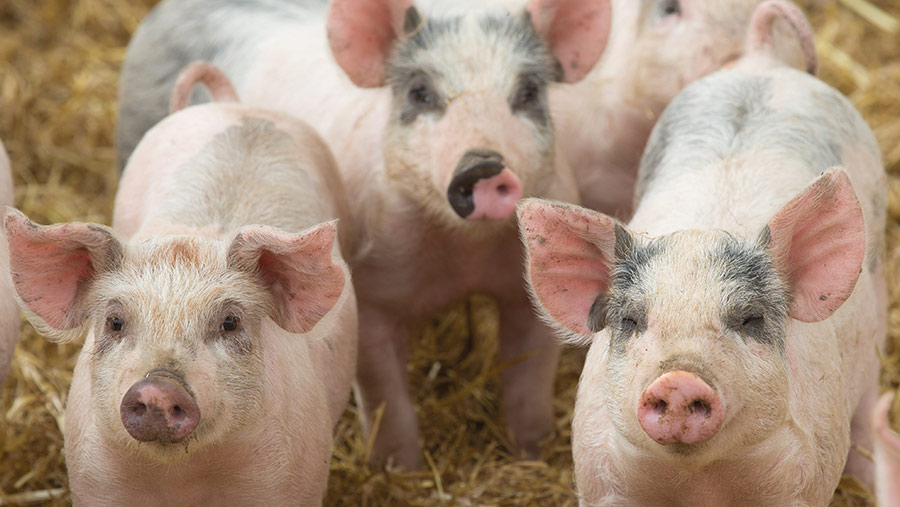Opinion: Pig sector woes could be a taste of things to come
 © Tim Scrivener
© Tim Scrivener Disgust at the prime minister’s dismissal of the pig crisis at his party’s conference earlier this month has been well covered in this and other publications, so I will try not to labour it further – although it still rankles.
Having kept pigs for most of my farming life, I was incandescent at his remarks.
Why he joked about something so fundamental can only be wondered at.
Could it be that pigs are not seen as cuddly as, say, Geronimo the alpaca (remember him?) and he thought he could get away with it? Or could he have been influenced by his bunny-hugging wife? Who knows?
See also: The grim state of mental health in agriculture
As I write, 800 temporary visas are set to be issued for overseas butchers, which should help the situation.
But not before thousands of pigs have been culled and many farmers forced out of production, encouraged, no doubt, by their bank managers.
The fact the decision to try to attract foreign butchers was made while Boris was sunning himself in Spain may have been significant. Meanwhile, losses continue.
The blame for all this can be placed at the government’s door. The shortage of foreign butchers and lorry drivers was caused by Brexit and subsequent restrictions on immigration from the EU.
Covid-19 didn’t help, but ministers were made aware of the growing problem many months ago and failed to act.
Sadly, the pig industry will not be the only agricultural sector that suffers a similar fate, nor is ours the only industry affected.
You only have to look at the rocketing price of nitrogen to realise the threat to arable crop profitability.
Chemicals will inevitably follow suit, and machinery has already done so, to say nothing about the availability of labour and inevitable wage demands, energy and fuel costs.
If the prime minister’s remarks on pigs are any guide, there seems little sympathy for agriculture at the top of government
Budgeting will be mere guesswork. The John Nix Pocketbook will read like historical fiction.
The only reliable bits will be those that predict how much and how fast Basic Payments Scheme money will be cut – unless NFU president Minette Batters can persuade the Treasury to delay them.
But if the prime minister’s remarks on pigs are any guide, there seems little sympathy for agriculture at the top of government. So don’t hold your breath.
How will farmers react? Well, fewer sows are being served as pig producers try to minimise their losses, so the pig herd will shrink.
Arable farmers will buy less fertiliser and chemicals, or none at all, and begin to convert to organic systems, or rewild. Either way, national yields will shrink.
Domestic self-sufficiency will decline and Britain will have to import more food – if it is available. Ministers kid themselves if they assume cheap food, of whatever dubious quality, will always be there for the taking.
Climate change will inhibit production, and demand for food worldwide will increase to feed the burgeoning population. Prices will rise.
Gone will be the days of almost zero interest rates. Inflation will return with a vengeance and dominate the economy.
It could be like Germany in the 1930s, when it took a barrow-load of Deutsche marks to buy a loaf of bread. OK, I’m exaggerating… I hope.
But I promise you it won’t be pretty. It’s called the law of unintended consequences.

